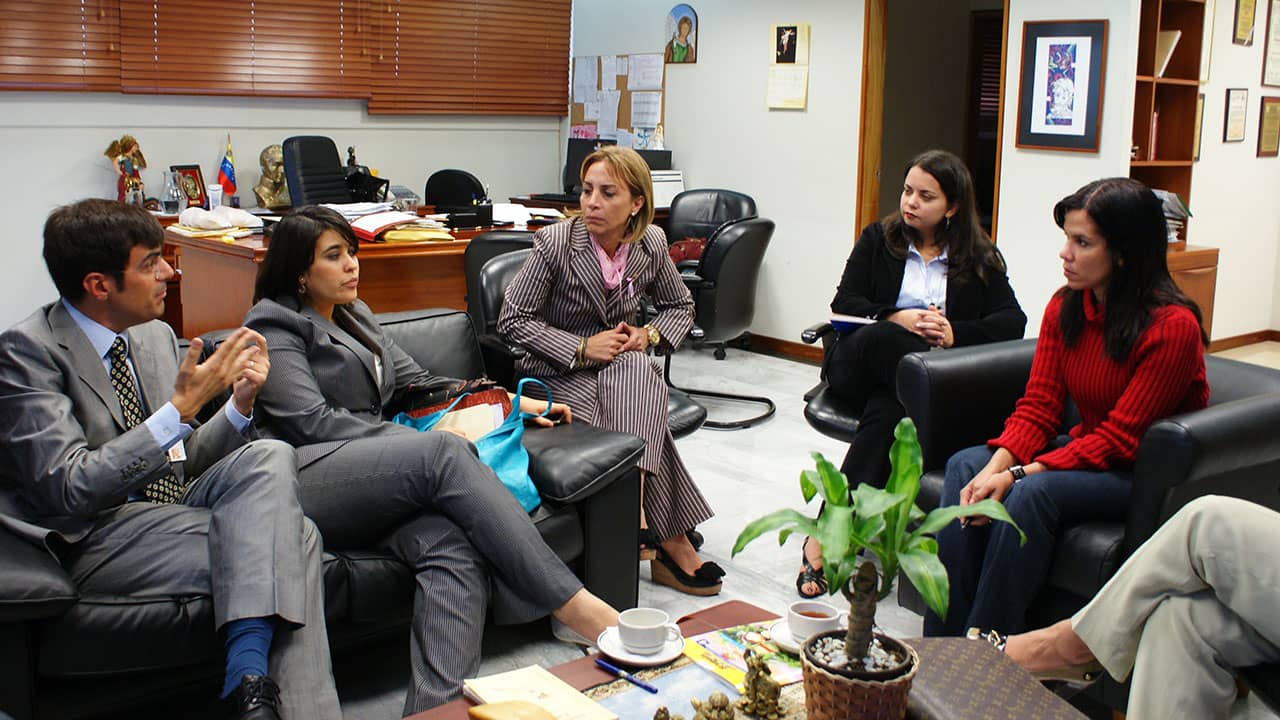
September 22, 2009 | Caracas, Venezuela
Venezuela was the first State from Latin America to become a State Party to the Rome Statute on June 7, 2000, but has yet to incorporate the Statute in its legal order. Accordingly, on September 22, 2009, upon the initiative and invitation of PGA Board Member, Dip. Jhannet Madriz, Vice-president of the Andean Parliament, the PGA Secretariat International Law Team carried out an assistance mission to Caracas to facilitate technical discussions with key stakeholders about the implementation of the Rome Statute within the national legal order.
The main objective of this mission was to aid in the clarification of the main legal obstacles to the implementation process, namely the constitutional prohibition on the extradition of Venezuelan nationals, the application of penalties longer than 30 years of imprisonment, and others. Furthermore, this mission specifically aimed to support the initiative undertaken by Dip. Madriz to include in the Procedural Code of Venezuela a section on international cooperation with the ICC.
The main outcomes of this mission included:
- Commitment by Governmental authorities to continue discussions on the inclusion of cooperation provisions within the procedural code, after its imminent adoption,
- Commitment to engage in dissemination activities with relevant Judges,
- Commitment to continue parliamentary work to complete the process of accession to the APIC,
- Ongoing consultations on the proposal of reform of the Criminal Code to be prepared by the Supreme Court (which includes a new section on international crimes),
- Assistance to be provided by PGA secretariat to interested stakeholders in liaising with similar institutions and actors (International Criminal Bar, CICC) to continue their engagement on the ICC.
This mission was possible thanks to the sponsorship of the Andean Parliament and the funding to the Campaign for the Rome Statute of the ICC provided by the European Commission, and the Governments of Belgium, The Netherlands and Switzerland.
